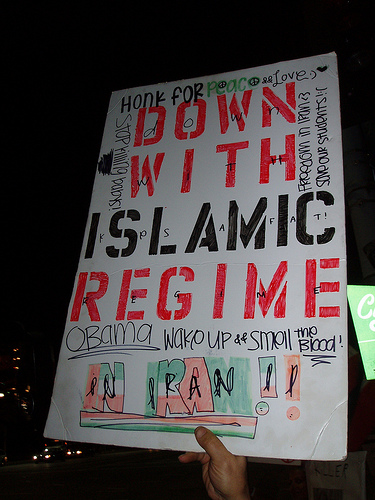
By Heshmat Alavi
The military phase of the fight against ISIS is winding down after the liberation of Mosul, and the battle for the nearby town of Tal Afar is predicted to end soon. This has provided an opportunity for Iraq to begin distancing itself from the influence gained by Iran following the disastrous 2003 war, and returning to its true Arabic heritage.Iraq was known as a melting pot where Arabs, Kurds
and Turkmens lived alongside and in mixed societies for centuries. Prior to Iran gaining its disastrous sway across Mesopotamia, this was a land where the majority of Shiites lived and prospered with their Sunni,
Christian, Yazidi and all other religious minority brothers.
Has not the time arrived for Iraq to regain its true position as part of the Arab world, and rid its soil of the meddling of Iran’s clerics?
Long-awaited developments
Iraqi officials have embarked on a new campaign of visiting Saudi Arabia and other Arab Sunni states, signaling long-welcomed changes. The influential Sadrist leader Muqtada was seen in the final days of July meeting with Saudi Crown Prince Mohamed bin Salman.
Only days later Sadr paid a visit to the United Arab Emirates, another critic of Iran’s policies, where he was welcomed as an Iraqi leader by a slate of leading politicians and clerics.
Sadr’s visit rendered a variety of measures by Riyadh, including launching a Saudi Consulate in Sadr’s hometown of Najaf, one of the two holiest Shiite cities in Iraq. Grand Ayatollah Ali al-Sistani, known as Iraq’s most senior Shiite cleric, his distance from Tehran’s viewpoints and calling for Iraq to practice openness in establishing relations, did not block such a proposition.

Iran, however, resorted to strong remarks against Sadr for his visits to Saudi Arabia and the UAE. The visit was even described by a local wire as an act of betrayal to the Houthis in Yemen.
Iran’s support for the Shiite proxy militias, through arms, logistics and finances, parallel to advisors dispatched by the Revolutionary Guards (IRGC) and Lebanese Hezbollah, have resulted in the humanitarian catastrophe Yemen finds itself today.
Sadr is also planning a visit to Egypt, adding to the list of senior Iraqi officials, including Prime Minister Haider al-Abadi and the ministers of foreign affairs, interior, oil and transportation who are set to visit Saudi Arabia. Despite investing in Iraq for the past 14 years, Iran has been deprived of visits of such high stature.
No future
Iran’s proxies, while taking the credit for much of the fight against ISIS on the ground, have been accused of law violations and refusing to obey the state of Iraq. Iraqi authorities affiliated to Iran have a very poor report card of being involved in corruption and sacrificing Iraqi national interest in Tehran’s favor.
This became a major issue during the second term of former Iraqi prime minister Nouri al-Maliki, who some have even described as Iran’s “puppet.” Maliki is known to have close relations with Tehran and Iranian Supreme Leader Ali Khamenei himself.
To make matters even worse, the recent departure of Majid al-Nasrawi, governor of the oil-rich city of Basra located at the southern tip of Iraq, has recently left for Iran. His departure followed being accused of numerous corruption offences by a government transparency committee. Choosing Iran as a destination has left further impression of him fleeing to a safe haven, and Tehran having a hand in Iraqi corruption.

Rebuilding cities
As Sadr and other Iraqi officials continue their meetings with senior Arab officials of the region, there are also major talks under way between Baghdad and Riyadh to establish a new alliance that would provide Saudi Arabia a leading role in rebuilding war-torn cities across Iraq.
On August 14th the Cabinet of Saudi Arabia announced a coordination committee to spearhead a variety of health care and humanitarian projects, including building hospitals in Baghdad and Basra, and providing fellowships to Iraqi students in Saudi universities. Opening border crossings and establishing free trade areas between the two countries is also on the agenda.
Riyadh should lead the Arab world in tipping the balance of power against Tehran’s interests in Iraq. The truth is Iran has not carried out any major economic project in Iraq from 2003 onward, due to the fact that the mullahs do not seek the prosperity of their western neighbor.
Saudi Arabia and the Arab world should provide the support Iraq needs after suffering from Iran’s menacing influence that has brought nothing but death and destruction. Evicting Iran from Iraq must come parallel to efforts of ending its presence in Lebanon, Syria and Yemen.
The main obstacle before the Arab world in establishing a coalition against Iran’s clerics is this regime’s meddling and the IRGC presence across the region. With Iran evicted from Iraq, the void should be filled by economic support by the Arab world for Iraq.
And with the US Congress adopting a bill against the IRGC, Riyadh must take the lead to have all IRGC members, proxies and Iran-related elements expelled from the region. Only such a policy will allow the Middle East to one day experience tranquility and peaceful coexistence.
originally published in the english.alarabiya

















